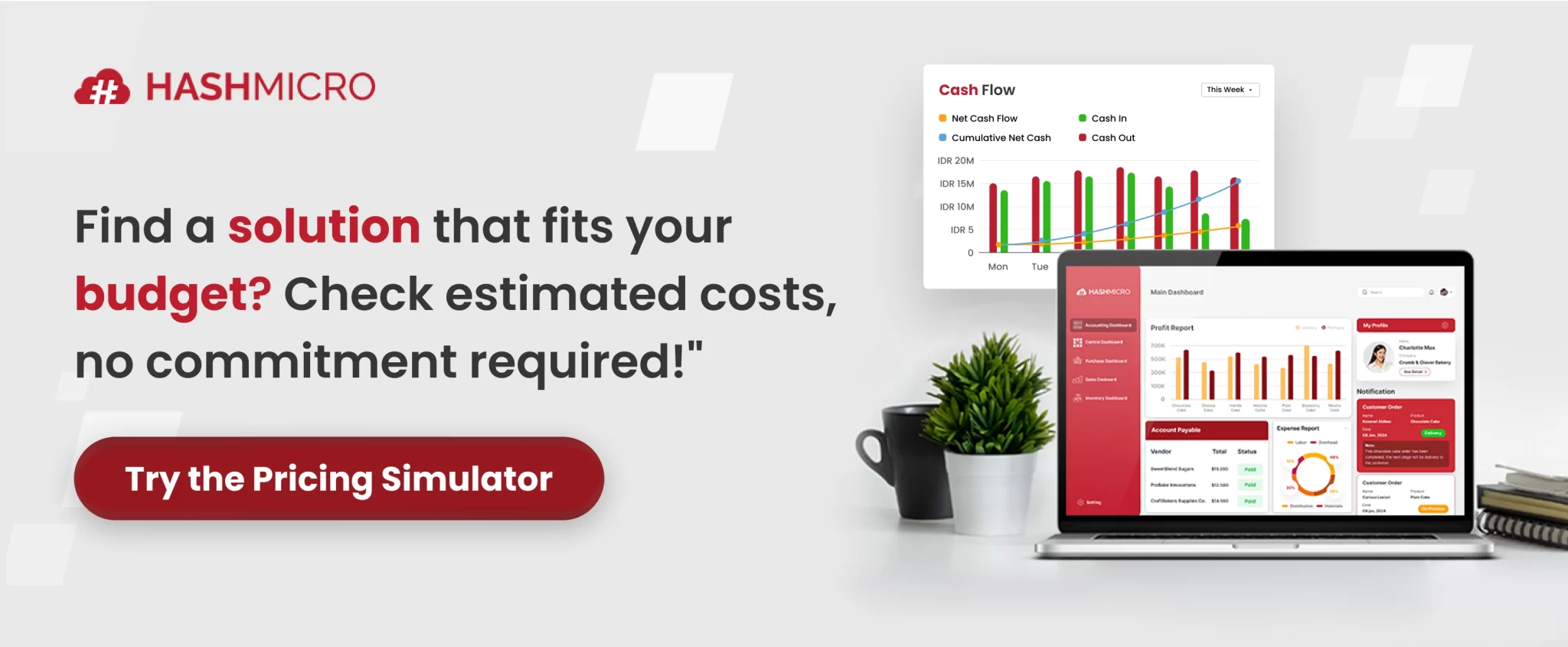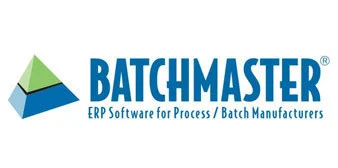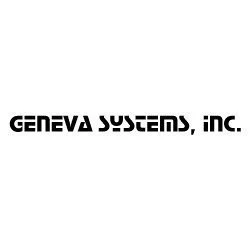Singapore’s food manufacturing industry is thriving, contributing $5.26 billion to GDP in 2022 and projected to reach $13.5 billion in revenue by 2023. With the Food Manufacturing Industry Transformation Map (ITM), Singapore is positioning itself as Asia’s leading food and nutrition hub.
From my work with F&B manufacturers, I have seen that leaders win by adopting integrated, data-driven systems. HashMicro Food & Beverage Manufacturing Software unifies inventory, quality, compliance, and real-time analytics to streamline production and automate key processes.
Discover how food and beverage manufacturing software is transforming operations and how it can benefit your business. Try our free demo today to see how it works!
Key Takeaways
|
Shortlisted Food Manufacturing Software
From my perspective, selecting the right food manufacturing software is a critical decision that directly impacts efficiency, compliance, and overall business growth. Based on my assessment, I have shortlisted several solutions that consistently demonstrate reliability and value for food manufacturers.
HashMcro
Best Because
The best end-to-end solution for all types of business needs
Best Because
Best for adaptable ERP with intelligent autonomy
Best Because
Best for industry-specific solutions for growing food businesses
Best Because
Best for mobile-friendly production and warehousing
Best Because
Best for tracking items and machine utilization
Best Because
Best for real-time insights and automated processes
Best Because
Best for ingredient and recipe management
Top 9 Food Manufacturing Software in 2025
In the rapidly evolving food manufacturing landscape, selecting the right software is crucial for maintaining competitiveness and ensuring operational efficiency. The right software can help businesses manage their processes more effectively, from production and quality control to inventory management and regulatory compliance.
To help you navigate this critical decision, we have compiled a list of Singapore’s top 9 food manufacturing software for 2025. These recommendations are based on their features, user reviews, and ability to address the specific needs of the food manufacturing industry.
Hashy AI Fact

Need to Know
AI automates food manufacturing management, enhancing accuracy and efficiency. AI for Food Manufacture streamlines production scheduling, tracks inventory in real-time, and optimizes supply chains, ensuring smoother workflows and lower costs.
Request a free demo today!
1. Hashmicro Food Manufacturing ERP Software
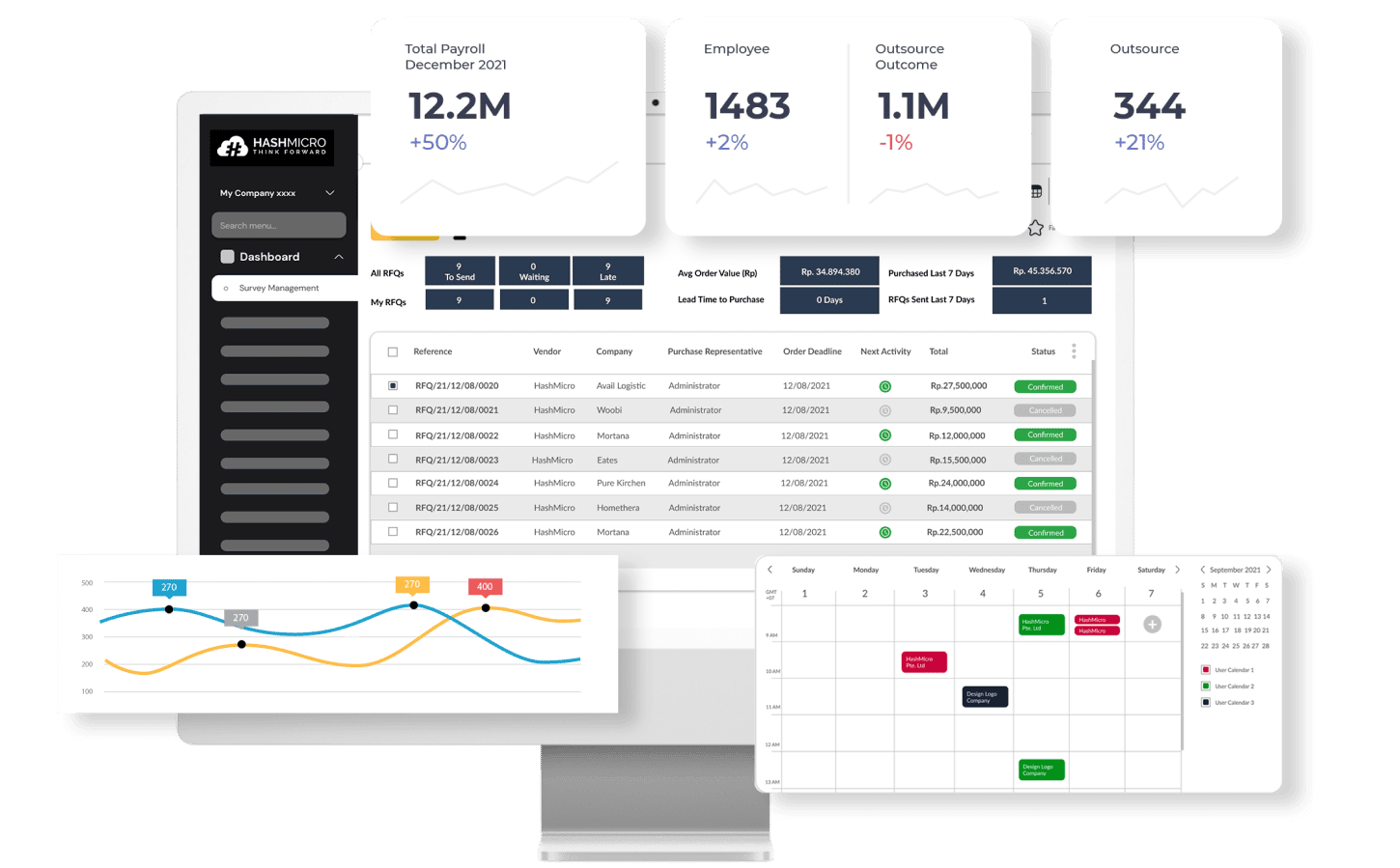
HashMicro, a leading ERP software provider based in Singapore, offers a comprehensive solution with its Food Manufacturing Software. This software is designed to enhance the efficiency of food and beverage manufacturing operations through its robust features and modules, including flexible manufacturing system to streamline production processes and adapt to changing demands seamlessly.
Key modules include manufacturing, procurement, sales & CRM, and accounting, enabling large and medium-sized enterprises to streamline their business processes effectively.
Automation is essential for scaling production and meeting specifications swiftly. Manual methods are impractical as food production evolves, making it challenging to manage processes like raw materials and supply chain management manually.
Features:
- Multi-Level Bill of Material: This tool empowers businesses to attain a comprehensive understanding of their production costs. It meticulously dissects the costs associated with components, spare parts, and raw materials used in the manufacturing process, providing invaluable insights for cost optimization and financial planning.
- Planning and Actualization Reports: This feature equips businesses with the tools to formulate effective production strategies. It offers a robust set of comparison reports that meticulously assess both planned and actual production, enabling businesses to make informed decisions and optimize their manufacturing processes.
- Warehouse Stock Capacity Monitoring: It empowers businesses to efficiently manage their inventory and prevent issues like expired or dead-stock products. By continuously monitoring warehouse inventory capacity, this tool enables organizations to prioritize on-hand stocks effectively, optimally allocating valuable resources.
- Timely Production Activities: This tool allows businesses to consistently meet customer demands by efficiently managing equipment, materials, and staff resources. It ensures that production activities are executed on schedule, maintaining optimal conditions for operations.
- Internet of Things (IoT): With IoT, businesses can monitor the production capacity of each machine with pinpoint accuracy in real-time, directly from their manufacturing software dashboard. This integration of IoT technology allows companies to gain immediate insights into machine performance, facilitating proactive maintenance and optimization of production processes.
A comprehensive manufacturing system achieves automation in your organization. Adopting the best ERP software for Food Manufacturing can drive efficiency and profit, with CTC Grants offering up to 70% savings. Here, we cover the key features, benefits, and integration of HashMicro’s ERP software for food manufacturing.
To understand how HashMicro can fit into your budget and operational goals, click the banner below to explore our flexible pricing schemes designed for businesses of all sizes.
2. IFS Cloud Food Manufacturing ERP Software
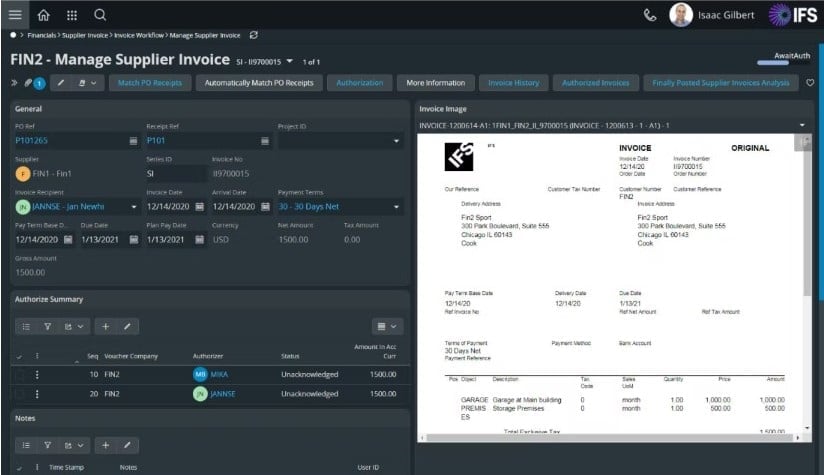
IFS Cloud provides various ERP, service management, and enterprise Asset Management Software features. Many businesses select their food industry software from IFS’s available solution areas.
IFS Cloud Food Manufacturing ERP Software is a robust, adaptable common platform that blends deep functional and industrial strength with intelligent autonomy. Manufacturing, energy, utilities and resources, services, construction and engineering, and aerospace and military are the five core areas that IFS Cloud Food Manufacturing ERP Software focuses on.
IFS Cloud provides a wide range of ERP, service management, and enterprise asset management features. Many businesses select their food industry software from IFS’s solution areas.
3. Deacom ERP Software for Food Manufacturing
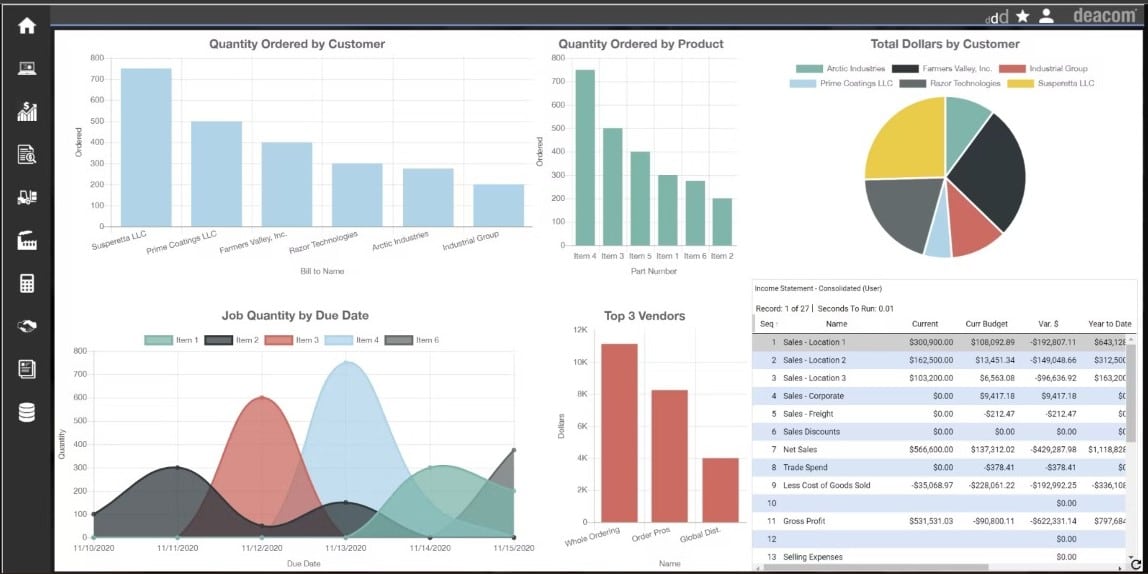
Deacom, an ECI Software Solution, is a complete ERP (Enterprise Resource Planning) platform with a wide range of features and extensibility ideal for expanding manufacturing and distribution companies. Each industry-specific feature has been created in-house and integrated into the platform’s core code.
This includes a warehouse management system, formulation, POS system, customer relationship management, point-of-sale, direct store delivery, lot traceability, forecasting, online shopping, and specialized software used in the food industry.
The ONE System, ONE User Experience, ONE Predictable Price, and ONE Team solution design are the product of the Deacom Manufacturing ERP Software concept.
4. BatchMaster ERP Software for Food Manufacturing
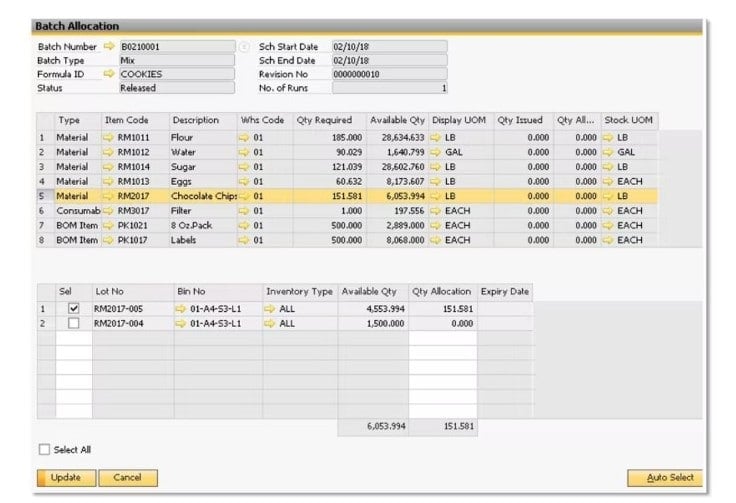
BatchMaster Software serves the food, chemical, nutraceutical, and pharmaceutical industries. The optional mobile application allows users to complete production and warehousing tasks using smart devices.
The full ERP software and its add-ons are supported on-premises and in a private cloud. User licenses, implementation charges, and support fees can all be combined in monthly cloud subscription plans.
5. Manufacturing & SFC
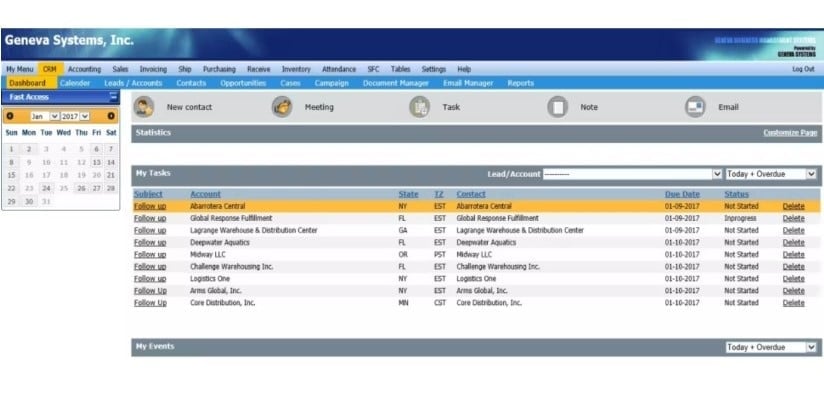
Software called GBMS-MRP & Manufacturing Execution is available from Geneva Systems. You can track the status of your items, orders, machine utilization, and labor costs effectively and electronically with barcode tracking software.
Their MRP/Mfg software is available for deployment on-site or as a cloud-hosted service in their data center. Additionally, the BOM for the mullite level will be supported, and some of the build items will be subcontracted during manufacturing.
Also read: Why Should a Singapore Company Use Manufacturing Application?
6. NetSuite Food Manufacturing ERP Software
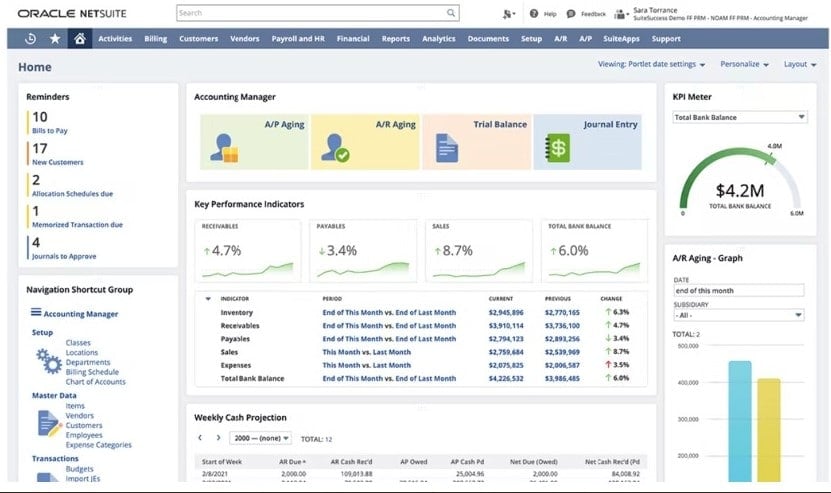
NetSuite is a cloud-based system that can be accessed through an internet connection. The food manufacturing system’s role-based dashboards offer a quick and convenient way to obtain real-time information to support business operations.
It is an all-in-one cloud business management system that boosts efficiency within organizations by automating key procedures and giving real-time insight into financial and operational performance, with a single, integrated suite of applications for handling the supply chain, warehouse, production, inventory management, and accounting processes.
7. PRIMS Food and Beverage Manufacturing Software
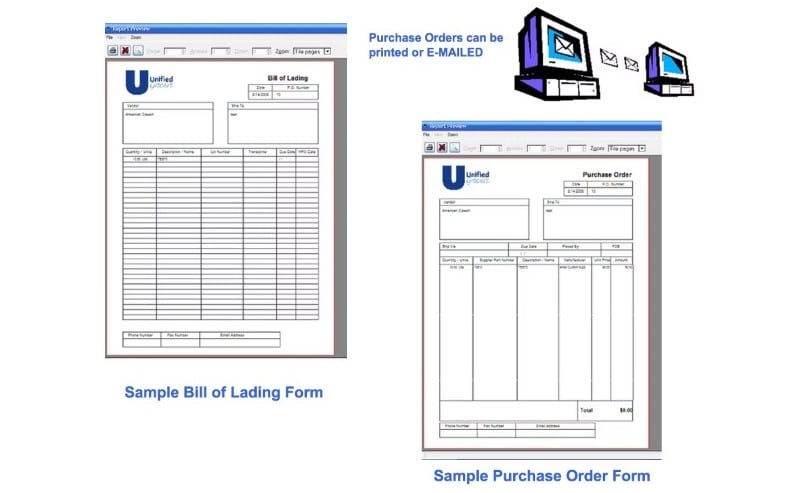
PRIMS, or the “Product Recipe Ingredient Management System,” is a versatile recipe management software tailored for ingredient batching systems using programmable logic controllers. This comprehensive suite offers reporting, inventory control, lot tracking, inventory management, and recipe management.
Designed for the Windows operating system, PRIMS supports on-premise deployment. The software is available in two editions, “Office” and “Enterprise,” with pricing based on a per-user license. As a food and beverage software, PRIMS ensures precise ingredient management and streamlined production processes, catering to the industry’s unique needs.
8. SYSPRO Food and Beverage Manufacturing Software
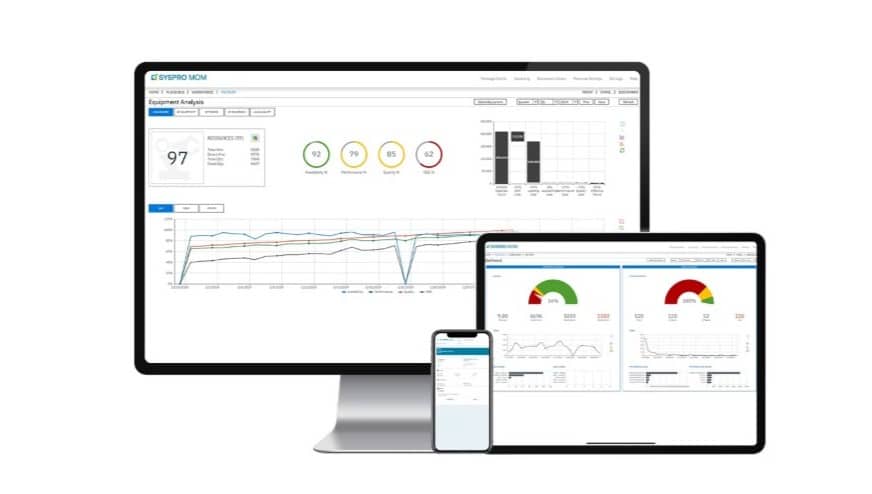
SYSPRO food and beverage manufacturing software is an industry-built enterprise resource planning (ERP) solution that offers last-mile functionality for manufacturing and distribution companies. The system is scalable and accessible through online or Windows programs, giving consumers freedom and choice.
Due to market specialization, self-service, supply chain extensibility, modification, and customizing, SYSPRO has a depth of capabilities in Manufacturing Operations Management (MOM), inventory, distribution, procurement, and the food manufacturing system.
Users also may extend the functionality of their food and beverage manufacturing system by connecting to other systems and integrating technologies like AI, ML, and IoT.
9. Oracle JD Edwards Enterprise One
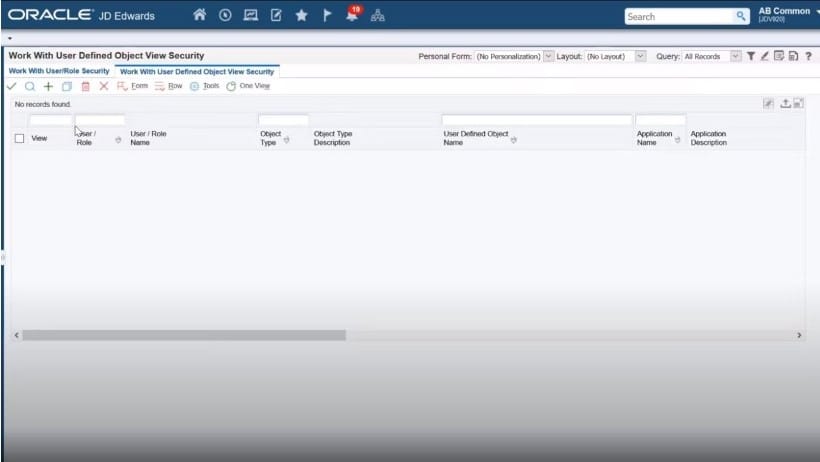
Oracle is a cloud-based ERP software for the food industry that can be accessed through an active internet connection. JD Edwards EnterpriseOne is an Enterprise Resource Planning (ERP) and supply chain management solution that runs in the cloud and offers ERP tools and applications for the manufacturing, distribution, consumer products, and human resources industries.
This software offers functions including reporting, business analytics, manufacturing, supply chain planning and logistics, project management, asset lifecycle management, order management, and CRM. Small, medium, and large enterprises can all use JD Edwards EnterpriseOne.
Also read: 5 Effective Ways to Optimize Food and Beverage Production Process.
Conclusion
Today’s food enterprises are crucial to the future growth of the food and beverage industry. However, food producers often face challenges, especially when scaling their operations. This is when feature-rich manufacturing software, including food manufacturing inventory management software, can help your food business thrive.
HashMicro’s Food Manufacturing Software offers a range of advantageous features and integration for your manufacturing businesses. This will be incredibly lucrative if you want to launch a food business. However, a company must have a seamless management process.
Using Singapore’s top food and beverage manufacturing software can seamlessly automate your company’s operations. To plan your budget effectively, explore HashMicro Manufacturing software and get a free demo today.

Frequently Asked Questions
-
What is ERP in the food industry?
ERP, or Enterprise Resource Planning, is a software solution designed for business management. It helps food companies streamline and improve various operations, including purchasing, accounting, finance, human resources, production, and logistics.
-
What is food processing software?
Food processing software is tools that assist food processing companies in managing inventory, production, traceability, and accounting integration. With rapid technological advancements, new solutions are continuously emerging in the food processing sector.
-
Do restaurants use ERP?
Restaurants use ERP systems to manage inventory, procurement, and accounting, integrating kitchen, front-of-house, and HR functions. These systems improve efficiency, reduce waste, and boost productivity with real-time data.



